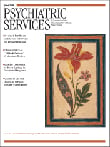On Being Normal and Other Disorders: A Manual for Clinical Psychodiagnostics
Paul Verhaeghe, a professor of psychoanalysis at the University of Ghent in Belgium, draws heavily on the work of the French psychoanalyst Jacques Lacan, whose prolific work (primarily in the 1950s and 1960s) builds on Freudian thinking using structuralist linguistics and focusing on identity through self-other relationships.
In On Being Normal and Other Disorders , Verhaeghe makes an elegant case for the application of Freudo-Lacanian theory as a sorely needed metapsychology for the field of clinical psychodiagnostics. He criticizes the current DSM system as a simple enumeration of symptoms that produces negative value judgments, promotes conformity, and has no meaning for treatment. Verhaeghe argues that the fundamental premise of the DSM system, classification based on empirical observation alone, is actually a tautology and ultimately disrespects the subject. As an alternative, he presents in detail the concepts and application of a Freudo-Lacanian psychoanalytic metapsychology.
The relation to the "Other" is central in Verhaeghe's conceptualization of pathology, and he explores the construction of identity, subject formation, fundamental fantasy, and actual pathology versus psychopathology. Verhaeghe then examines selected DSM disorders from a Freudo-Lacanian orientation, conceptualizing them through a three-pronged lens of neurosis, perversion, and psychosis. Language plays a prominent role in Verhaeghe's understanding of the construction of reality and power dynamics in the therapy relationship, and he frequently incorporates a sort of linguistic analysis. A potential link is there to the "narrative" in postmodern psychology.
Many readers will likely be sympathetic to Verhaeghe's critique of pure behaviorism and symptom reduction as meager substitutes for a meaningful and applicable understanding of etiology, psychopathology, and treatment. His call for a research-based metapsychology is laudable. However, the text is replete with unsubstantiated declarations such as "guilt is a central phenomenon that appears in nearly every form of pathology" or "depression begins when … the subject is convinced that she or he no longer satisfies the Other's desire." Such claims may sometimes be the case, but the certainty and universality with which these claims are made imply a rigid orthodoxy. Despite the claims of being research based, Verhaeghe acknowledges that "there are no specifically Lacanian research instruments."
In sum, On Being Normal and Other Disorders is a fascinating look into the world of Freudo-Lacanian theory and application. The language is unassuming, the reasoning is elegant, and the flow of ideas is smooth. Apart from a few points where the discrepancies in meaning between Dutch and English were too great to capture, the translator does an admirable job. Overall, this work masterfully brings to life a somewhat obscure area of psychoanalytic theory. Whether Verhaeghe succeeds in providing the missing metapsychology necessary for meaningful clinical psychodiagnostics will be up to the reader to determine. But either way, the journey is enjoyable.



